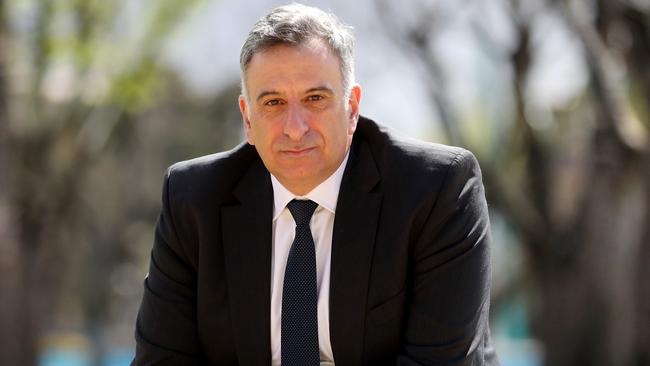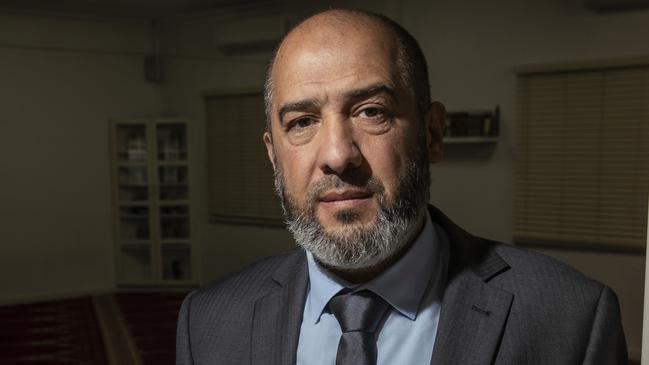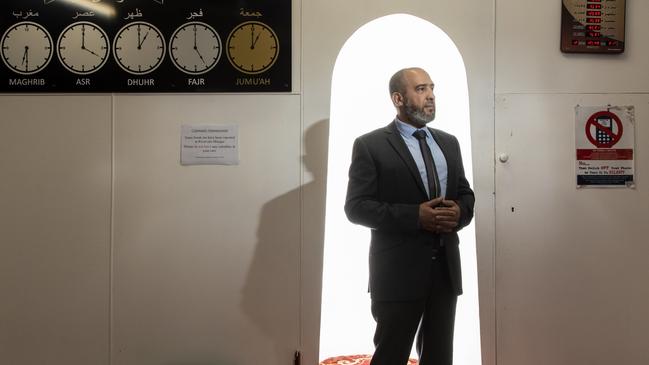Kamalle Dabboussy reinstated by court after termination by Australian Federation of Islamic Councils
The CEO of a peak Australian Islamic body has been reinstated to his role by a court after he was terminated following an allegation of sexual harassment, which he denies.

Police & Courts
Don't miss out on the headlines from Police & Courts. Followed categories will be added to My News.
A peak Islamic body’s CEO has denied allegations he sexually harassed a woman hired as his new executive assistant, with a court ordering the organisation to reinstate him after he was sacked over the claims.
Kamalle Dabboussy was appointed the Australian Federation of Islamic Council’s CEO in September 2023 after decades working in the public sector, including as the Western Sydney Migrant Resource Centre’s chief executive.
The Federal Court has now ordered AFIC – a not-for-profit which represents Australia’s Muslim community – to reinstate Mr Dabboussy, finding his allegation he was unlawfully terminated hours before he was entitled to lodge an unfair dismissal claim had merit.
On Tuesday, Federal Court Justice John Nicholas said AFIC had tendered an email from a woman complaining of sexual harassment by Mr Dabboussy on July 28.
The Daily Telegraph does not suggest the sexual harassment allegation is true, but merely that a complaint was made in writing to AFIC.
“She asserts that Mr Dabboussy inappropriately told her several times that ‘the camera really doesn’t do you justice’ during (a meeting) at AFIC’s Zetland office,” Justice Nicholas stated in his judgment.

“(She) also complains of inappropriate conduct involving unnecessary and prolonged eye contact which made her feel extremely awkward and uneasy.”
Mr Dabboussy denies staring at the woman inappropriately, but says he did say “the camera does not do you justice” in the context of only having met her on a Zoom call previously.
On August 9, AFIC president Dr Rateb Jneid wrote to Mr Dabboussy about “serious misconduct” accusations against him.
“We have been made aware of the fact that during (the complainant’s) attendance at the office you made inappropriate comments towards her which were suggestive and sexual in nature,” Dr Jneid wrote.
“On the face of it, we believe that this conduct amounts to serious misconduct – specifically, we believe that this conduct amounts to sexual harassment.”
Dr Jneid then informed Mr Dabboussy he would be stood down with pay for two weeks while an investigation took place.
Mr Dabboussy acknowledged the seriousness of the allegations and asked to be involved in the investigation so he could fairly respond.
Minutes from an “emergency meeting” of AFIC’s Executive Council on September 2 record that Dr Jneid presented the investigation’s draft findings, which concluded the woman’s allegations were “substantiated on the balance of probabilities”.

The report, quoted in part by Justice Nicholas, said Mr Dabboussy’s alleged conduct was on “the lower end of the scale of inappropriate behaviour”.
“It is crucial to recognise that Mr Dabboussy chose to make comments about the complainant’s appearance, which were unnecessary,” the report stated.
“Additionally, the comment ‘the camera does not do you justice’ … implies that the person making the remark finds the other person attractive.”
Justice Nicholas said he found Mr Dabboussy’s contentions that his dismissal was unlawful because of how swiftly the meeting was convened, or that it was an adverse action due to his complaints about the investigation, were weak.
However, he took a different view on Mr Dabboussy’s claim the termination was unlawful as it occurred seven hours before he became entitled to bring an unfair dismissal claim.
The Fair Work Act stipulates small business employees cannot make an unfair dismissal claim in the first 12 months following their employment.
“The evidence before me strongly suggests the executive committee meeting was arranged with great haste at a time when the report had not even been finished, and after Mr Dabboussy had already been stood down,” Justice Nicholas said.
“In my view, there is a strong inference available that the executive committee was convened by Dr Jneid for the purpose of facilitating termination of Mr Dabboussy’s employment before September 4, so as to deny him the opportunity to make a claim for unfair dismissal.”

Justice Nicholas ordered that Mr Dabboussy be reinstated by AFIC prior to the proceeding’s final determination.
He considered submissions that Mr Dabboussy’s termination would cause financial hardship, and that some AFIC employees had indicated they would be uncomfortable if he returned.
Mr Dabboussy’s counsel accepted it would be open to AFIC to stand him down upon his interim reinstatement or direct him to work from home until the proceeding is heard and determined.
Justice Nicholas ordered the proceeding be expedited, with the matter to be listed for case management as soon as practicable.
Mr Dabboussy is to file a statement of claim by September 20, with AFIC ordered to file and serve its defence by September 27.
Mr Dabboussy told the Daily Telegraph he was unable to say much as the matter remains before the court.
“I’m thankful for yesterday’s decision,” Mr Dabboussy said.
“I maintain that I haven’t done anything wrong, and certainly nothing that warrants dismissal.”
Do you have a story for The Daily Telegraph? Message 0481 056 618 or email tips@dailytelegraph.com.au





